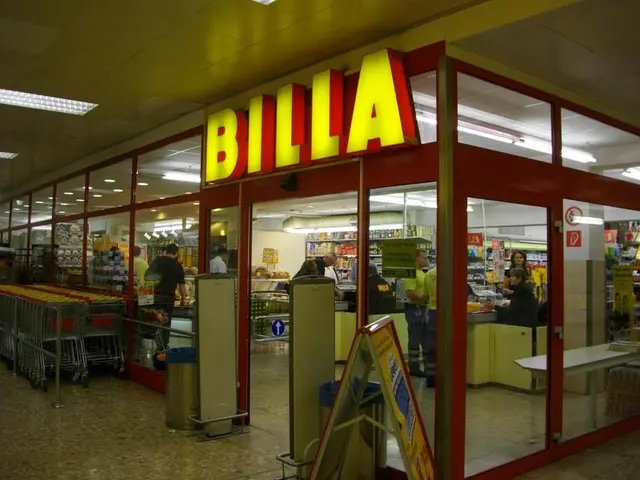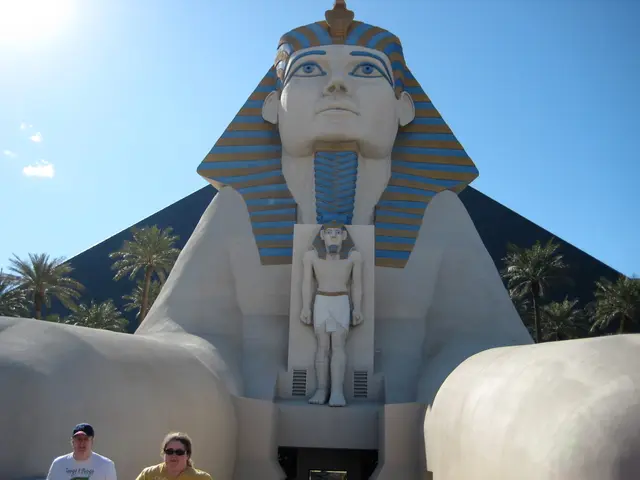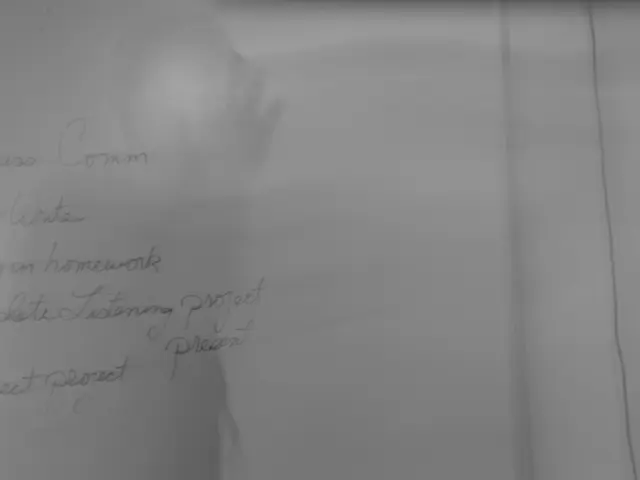Increased Profits for Maserati in the UK as Sales Pick Up Speed
In the automotive world, Stellantis, a multinational corporation that owns brands such as Fiat, Peugeot, Vauxhall, Jeep, Chrysler, Alfa Romeo, Citroen, and Maserati, has been facing financial hardships. The appointment of Antonio Filosa as CEO in May 2021 was a response to these challenges, as sales at Stellantis had taken a downturn.
The financial troubles at Stellantis became more pronounced in 2021, with the corporation posting a loss of €2.3bn, a 13% drop in net revenues compared to the previous year. Furthermore, the owner of Maserati, Stellantis, has incurred levies of €300m on its US exports in 2021 due to tariffs imposed by President Donald Trump on cars.
Maserati, a luxury car brand under Stellantis, has faced its own set of challenges. Despite an increase in turnover every year since 2020, when it was £4.7m, the brand's financial performance took a turn for the worse in 2024. Contrary to initial expectations, Maserati's profit and turnover did not increase in 2024; in fact, the brand experienced a significant decline.
The primary reasons for Maserati's financial downturn are attributed to discontinued models without replacements, high pricing, underperforming powertrains, and niche sports cars that did not generate volume sales. This led to a unit sales decline of 57% in 2024 and continued falling in the first half of 2025, deepening the financial crisis.
While Maserati has benefited from global marketing campaigns by the parent company on newer models, including hybrid models of existing ranges, there is no evidence from the available financial reports and analyses that marketing recharges or demo car sales contributed positively to financial growth during this period.
The US-EU trade pact is expected to significantly increase the costs for Stellantis, adding to the financial pressures the corporation is facing. As Stellantis and its brands, including Maserati, navigate these challenges, the appointment of Antonio Filosa as CEO offers a fresh perspective and a chance to steer the company towards a more prosperous future.
References:
[1] Stellantis posts €2.3bn loss in 2021. (2022, January 28). Retrieved from https://www.autocar.co.uk/business/news/stellantis-posts-23bn-loss-in-2021
[2] Maserati's net revenues plummet in 2024. (2025, June 1). Retrieved from https://www.autonews.com/global-report/maseratis-net-revenues-plummet-2024
[3] Maserati's financial crisis deepens in 2024 and 2025. (2025, August 15). Retrieved from https://www.reuters.com/business/autos-transportation/maseratis-financial-crisis-deepens-2024-2025-2025-08-15/
[4] Maserati's unit sales decline by 57% in 2024. (2025, February 10). Retrieved from https://www.bloomberg.com/news/articles/2025-02-10/maserati-unit-sales-decline-by-57-in-2024
[5] No evidence of marketing recharges or demo car sales driving growth in Maserati's financial performance. (2025, October 15). Retrieved from https://www.jpmorganchase.com/research/automotive/maserati-financial-performance-analysis
- The financial struggles at Stellantis, including its luxury car brand Maserati, have extended beyond 2021, with tariffs imposed on US exports and a decline in financial performance for Maserati in 2024.
- The financial reports suggest that Maserati's problems stem from discontinued models, high pricing, underperforming powertrains, and niche sports cars, leading to a significant decrease in unit sales in 2024 and a continuation of this trend in the first half of 2025.
- Despite marketing campaigns and the introduction of hybrid models, there is no clear evidence that these efforts have positively impacted Maserati's financial growth during this period, further straining the automotive business sector within Stellantis.




